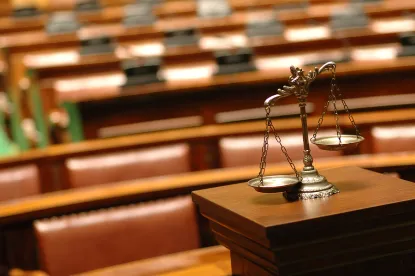The Illinois Supreme Court in Kakos v. Butler, 2016 IL 120377, has found that the six-person civil jury statute enacted last summer is unconstitutional on its face.
Facts
Public Act 98-1132, effective June 1, 2015, amended section 2-1105(b) of the Illinois Code of Civil Procedure (735 ILCS 5/2-1105(b)) by limiting the size of a jury in all civil cases to six people and increasing the amount paid per day to jurors across the state. Transcripts from the legislative debates regarding the Act “reveal the legislation was intended to make jury trials more efficient and to incentivize citizens to participate in jury duty.” Kakos, ¶33.
Prior to the enactment of the Act, section 2-1105(b) provided:
All jury cases where the claim for damages is $50,000 or less shall be tried by a jury of 6, unless either party demands a jury of 12. If a fee in connection with a jury demand is required by statute or rule of court, the fee for a jury of 6 shall be ½ the fee for a jury of 12. A party demanding a jury of 12 after another party has paid the applicable fee for a jury of 6 shall pay the remaining ½ of the fee applicable to a jury of 12. 735 ILCS 5/2-1105(b) (West 2012).
The Act eliminated the ability of either party to request a jury of 12 by amending section 2-1105(b) as follows:
All jury cases shall be tried by a jury of 6. If alternate jurors are requested, an additional fee established by the county shall be charged for each alternate juror requested. For all cases filed prior to the effective date of this amendatory Act of the 98th General Assembly, if a party has paid for a jury of 12, that party may demand a jury of 12 upon proof of payment. 725 ILCS 5/2-1105(b) (West 2014) (amended by Pub. Act 98-1132 (eff. June 1, 2015)).
In this medical malpractice action filed after June 1, 2015, defendants filed their appearance and then moved for leave to file a 12-person jury demand and to declare the Act unconstitutional. The circuit court found the Act unconstitutional and the appeal proceeded to the Supreme Court, which immediately hears all appeals from circuit orders finding a state statute unconstitutional.
Holding
As determined in Kakos, Act I, section 13, of the Illinois Constitution enacted in 1970 provides that the “right of trial by jury as heretofore enjoyed shall remain inviolate.” The Supreme Court “has long interpreted the phrase ‘as heretofore enjoyed’ to mean ‘the right of a trial by jury as it existed under the common law and as enjoyed at the time of the adoption of the respective Illinois constitutions.’” The Supreme Court reviewed all case law addressing jury size before the enactment of the 1970 Constitution and found that in all cases the jury size was described as “12.” From this, the Supreme Court concluded that the “size of the jury is an essential common-law characteristic protected by the Illinois Constitution.”
The high court then found that “there is ample evidence that the drafters at the 1970 Constitutional Convention believed they were specifically preserving the right to a 12-person jury when they adopted the current constitution. Delegates debated allowing the legislature to reduce the size of civil juries to fewer than 12 members and allowing the legislature to require less-than-unanimous verdicts in civil trials. Transcripts from the constitutional convention debates disclose that the delegates did not believe that the legislature had the authority to reduce the size of a civil jury prior to the 1970 convention.”
Finally, the Supreme Court rejected the plaintiff’s principal argument that not all common-law features of a jury trial were preserved in the 1970 Constitution because the 1870 Constitution then in effect stated that “the right of trial by jury as heretofore enjoyed shall remain inviolate; but the trial of civil cases before justices of the peace by a jury of less than twelve men may be authorized by law” (emphasis added), as opposed to men and women. Noting that the term “men” had been used elsewhere in the 1870 Constitution, the Supreme Court concluded that “it would be absurd and lead to ridiculous conclusions if the term ‘men’ in these contexts was not interpreted in a generic sense. There is no similar reason for interpreting the … number 12 in its descriptions of the essential elements of a jury trial as some number less than 12.”


 />i
/>i
